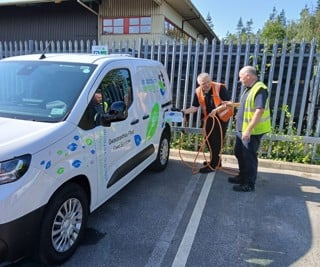According to Graham Hurdle, managing director of E-Training World, middle managers are critical to the success of driver assessment and tuition and can have either a ‘positive’ or a ‘negative’ impact on the entire process.
"Line managers with the wrong attitude can waste companies many thousands of pounds and hundreds of man hours when it comes to Duty of Care," says Hurdle, " and in many businesses they receive very little attention, advice or support.”
Studies of the on-line e-driver training and assessment systems they provided to clients show a 20 per cent reduction in accidents and an 8 per cent saving on fuel after the delivery of the training programmes.
However, recently they went “on site” with a major fleet operator and conducted an initial pilot project at one depot directly involving middle managers stressing the importance of safe driving and driver attitudes, taking a holistic approach rather than just focusing on driver training.
After the scheme, accidents involving the depot staff reduced by 70 per cent resulting in the company requesting the same approach be immediately implemented in another region.
From his own extensive experience Hurdle has found that while driver risk assessment and training are often launched from the fleet department, with approval and buy-in from the Board, there is a huge reliance on the middle management tier to make it work on a day-to-day basis.
"If you look at the simple example of a driver having a small knock or scrape in their vehicle due to sloppy manoeuvring or laziness, if the line manager simply pats him or her on the back and says not to worry about it, this sends a terrible message to the rest of their team.
"It’s very frustrating to fleet managers because a change of attitude, which makes it clear that any form of vehicle damage is unacceptable, would go a very long way towards embedding a much better culture throughout a business and hopefully cut costs and staff down-time."
Hurdle also quotes other examples he has seen of middle managers telling drivers that their assessment and training were a 'waste of time', instructing them that they have to take urgent calls even when driving, and foregoing vehicle checks on vans to make urgent deliveries.
"My experience tells me that companies could be wasting valuable money and effort by not taking time to communicate to middle managers and get their whole hearted involvement in this process. It is something we play very heavily on when talking to our customers about reducing fleet costs through fewer accidents," concluded Hurdle.

















Login to comment
Comments
No comments have been made yet.